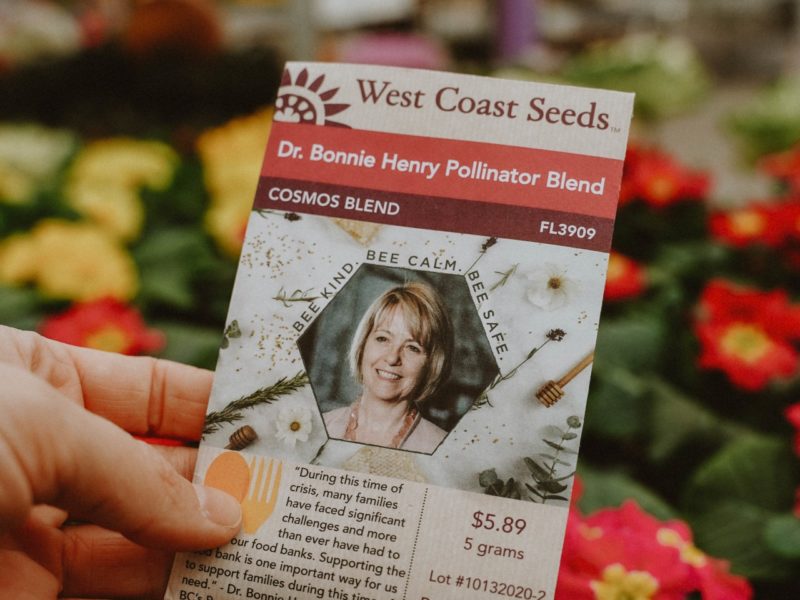December is a month when giving is on people’s minds, and corporate generosity makes headlines.
This year is no different, though the challenges the supply chain faced during the COVID-19 pandemic made giving the gift of good food an alternative to for-profit sales for many organizations. Good news sells in hard times, and farmers and suppliers have stepped up to feed people’s needs.
On November 16, West Cast Seeds of Delta, which saw unprecedented demand from home gardeners at the start of the pandemic, launched the Dr. Bonnie Henry Pollinator Blend for home gardeners keen to “bee safe” and “bee kind.” More than 5,500 packets sold out in just three days, with all proceeds supporting Food Banks Canada operations in the purchaser’s locale.
West Coast Seeds president Aaron Saks says an additional 20,000 units of the seed blend will raise the total gift to Food Banks Canada to $150,000.
In addition to the Dr. Bonnie Henry campaign, West Coast Seeds launched another giving campaign over the Black Friday weekend, donating 15% of all sales to the Breakfast Club of Canada, resulting in a $13,500 donation. The Breakfast Club of Canada serves over 250,000 nutritious breakfasts daily in 1,880 schools throughout Canada. Every $3.00 donation equals one breakfast to a child in need.
“A big part of our mission at West Coast Seeds focuses on education and community outreach, which is why the Breakfast Club of Canada felt like a natural fit to be our Black Friday giving partner.” explained Aaron Saks, West Coast Seeds. “We know 2020 has been a challenging year for many, so to be able to help provide food for over 4,500 kids through the Breakfast Club of Canada is really important to everyone here at West Coast Seeds.”
Foodbanks BC was among the beneficiaries of donations by the BC Egg Marketing Board, whose 144 members donated $750,000 worth of eggs to the organizations 103-member food banks this year. A weekly supply flowed from the egg graders Island Eggs, Farmer Ben’s and Golden Valley to each of the foodbanks’ five regional hubs, which then made the eggs available to individual food banks for more than 80,000 households.
The other poultry groups also helped keep the less fortunate fed. BC milk producers meanwhile contributed 40,000 litres of milk, 3,000 kilograms of butter and 5,000 kilograms of cheese to 25 food banks.
In addition to the supply managed sectors, potato and vegetable growers also contributed product, contributing to a well-rounded diet for those adversely affected by the pandemic.
The spirit of giving


 Vegetable growers lose key product
Vegetable growers lose key product